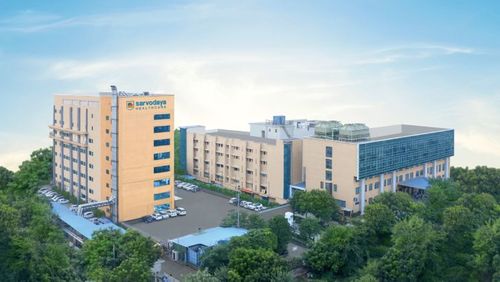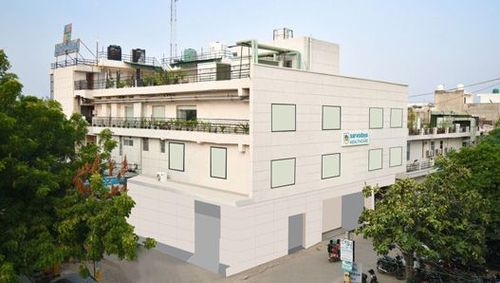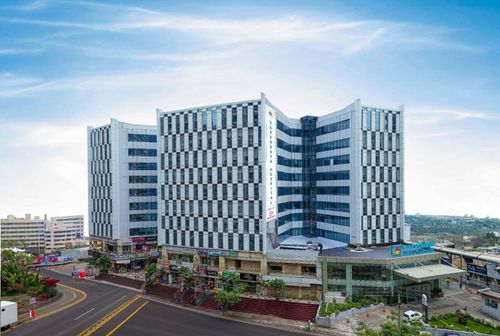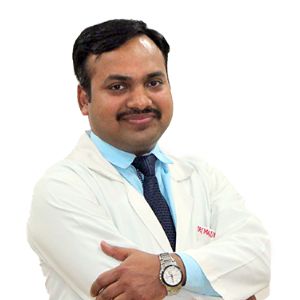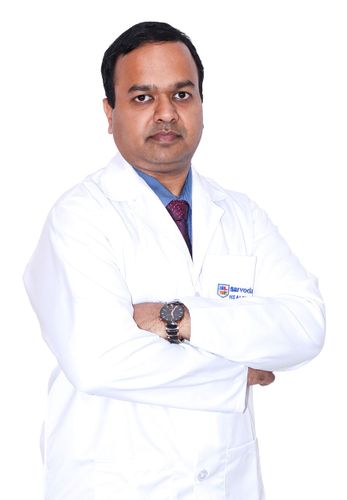Overview
Tennis Elbow, or Lateral Epicondylitis, is a painful condition caused by overuse or repetitive strain on the tendons around the outer elbow. It’s common not only among racket sport players but also in people with active hands-on jobs. At Sarvodaya Hospital, we offer advanced tennis elbow treatment through both non-surgical and minimally invasive surgical options.
Treatment plans may include medication, physical therapy, and in complex cases, robotic-assisted procedures for precise tendon repair. Our expert orthopaedic team ensures faster recovery and personalised care, right from diagnosis to rehabilitation, for every patient.
Tennis Elbow Symptoms
- Pain or burning on the outer part of the elbow
- Weak grip strength
- Discomfort while lifting, gripping, or twisting
- Tenderness over the bony bump
- Stiffness in the elbow joint
- Pain that may radiate down the forearm
Tennis Elbow Causes
- Overuse of forearm muscles
- Strain from gripping or lifting heavy objects repeatedly
- Playing racket sports
- Occupational stress
- Prolonged use of a computer or a mouse
- Weak shoulder or wrist muscles
- Sudden injury or trauma to the elbow
Tennis Elbow Diagnosis
Diagnosing Tennis Elbow involves a combination of clinical assessment and imaging to determine the extent of tendon damage. At Sarvodaya, the best orthopaedic doctor in Faridabad performs a detailed evaluation to decide whether conservative care or advanced options like robotic surgery may be required.
- Physical examination – checking for pain, tenderness, and range of motion around the elbow.
- Medical history review – understanding repetitive activity, sports involvement, or occupational stress.
- X-rays – used to rule out arthritis or bone spurs that may mimic symptoms.
- MRI or Ultrasound – helpful in detecting tendon degeneration or inflammation in chronic or severe cases.
Tennis Elbow Prevention & Lifestyle Modification
Preventing Tennis Elbow involves building strength, improving technique, and listening to your body’s signals. At Sarvodaya, we guide patients through tailored tennis elbow treatment physical therapy plans that combine prevention and precision care, reserving advanced options like robotic joint surgery for chronic or resistant cases.
- Use proper technique during sports or repetitive occupational tasks.
- Strengthen forearm, wrist, and shoulder muscles with guided physiotherapy exercises.
- Take regular breaks when doing repetitive hand motions.
- Use ergonomic tools or racquets with the correct grip size to reduce strain.
- Warm up and stretch properly before physical activity to prepare tendons.
- Use braces or supports if recommended, especially during active use or sports.
Pre- & PostTreatment Lifestyle Modifications
Pre-Treatment Modifications:
- Avoid repetitive arm movements
- Apply cold compresses
- Follow medication and diagnostic instructions
- Inform your doctor about any current medications
- Prepare for short-term limitations
Post-Treatment Modifications:
- Follow the prescribed physiotherapy and rehabilitation plan
- Use elbow braces or supports
- Apply ice packs as needed
- Gradually return to normal activities
- Continue strengthening exercises


